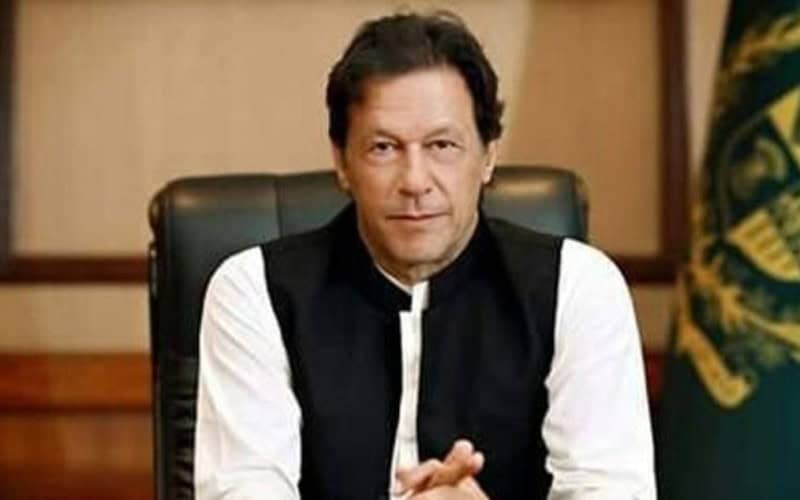Beijing: When Pakistani Prime Minister Imran Khan arrives in Beijing later this week, the newly-minted leader will have his task cut out: To secure fresh Chinese loans for his country’s hobbling economy.
Khan’s four-day visit, which begins on Friday, is also significant for Beijing, which is worried over the tardy progress of the China-Pakistan Economic Corridor (CPEC) and Islamabad’s new government’s reported second thoughts on the project, a linchpin of President Xi Jinping’s Belt and Road initiative.
“During his election campaign, he said some words against the Belt and Road initiative. We were worried if there would be some policy changes (if he came to power). But recently, I think, things have become better,” Wang Dehua, a South Asia expert at the Shanghai Municipal Center for International Studies, told IANS.
“This is Imran Khan’s first visit (to China) and will be a landmark one,” Wang added.
In the run-up to Pakistan’s general election earlier this year, Khan had slammed his predecessor Nawaz Sharif for alleged corruption in the Chinese-funded project.
Beijing grew more worried when the new government under Khan reportedly said Islamabad thinks the deals under the CPEC were “unfair” and wants to renegotiate them with Beijing.
“This was a misleading interpretation by the media,” Wang added.
Xi Jinping has poured about a trillion dollars into the Belt and Road project that aims to connect Asia, Africa and Europe through a vast network of highways, railways and sea lanes.
Of the allocation, China has pledged some $60 billion for the CPEC alone, the crown jewel of its connectivity project that aims to connect Kashgar in its restive western province Xinjiang with Pakistan’s Gwadar port in the troubled Balochistan region.
Beijing knows the strategic importance of Gwadar port in the Arabian Sea which, once developed, will give China easy access to one of the most important trade arteries, the Straits of Hormuz.
China is building railways, highways and industrial parks under the framework of the CPEC, which, it says, will give jobs and bring prosperity to Pakistan. Islamabad too says this publicly.
The “iron-brothers” keep swearing unflinching loyalty to each other.
India has made no bones about its opposition to the CPEC as it claims the part of disputed Kashmir held by Pakistan through which the route of project is planned.
Besides this, the West sees the Belt and Road as a tool for Beijing to spread its geo-strategic influence and push poor countries like Pakistan into a debt trap by giving them high-interest loans.
When China and Pakistan inked the CPEC deal in 2013, Pakistan’s foreign debt was $61 billion, which now stands at about $95 billion. According to independent estimates, Islamabad owes $19 billion to Beijing alone.
Pakistani Railway Minister Sheikh Rasheed Ahmad lent credence to these reports when he announced that Chinese investment in a rail project was being lowered from $8.2 billion to $6.2 billion, citing his country’s inability to repay.
“CPEC is like the backbone for Pakistan, but our eyes and ears are open,” Ahmad said.
China vehemently denies the charge of “debt diplomacy”, saying the US is jealous of the success of the Belt and Road initiative and Beijing’s rise. It maintains that the CPEC has brought stability to the region.
Pakistan is a broke nation today whose biggest lender is China. Since 1980, Islamabad has gone to the IMF 13 times seeking bail outs.
When Khan made the 14th attempt, the IMF told Islamabad to disclose all the financial details of the CPEC about which China and Pakistan have been cagey.
Khan changed his mind, flew to “friendly” Saudi Arabia and came back with a $6 billion loan.
The leader, who has vowed to change the fortunes of Pakistan, will try his luck yet again when he meets Xi.
Asked if he thinks Beijing will give another loan to Islamabad, Wang said: “No comments.”
Beijing has sounded positive about granting new loans to Islamabad with the Foreign Ministry saying that China supports Pakistan in dealing with a difficult financial situation.
In the face of a bleeding trade war with the US and a slowing down of China’s economy, Chinese critics have begun questioning the way Xi is giving loans to other countries.
If Beijing extends another loan to Pakistan after sanctioning $2 billion earlier this year, it is to be seen what promise it exacts from Islamabad.
Also, Beijing would never want the US-dominated IMF to know about the financial details of the CPEC.
Khan is all praise for the CPEC now and might go back home happy. However, he might be conveyed Beijing’s displeasure over Pakistan raising human rights issues in Xingjiang.
In October, Pakistan’s Religious Affairs Minister urged the Chinese envoy to soften the restrictions placed on Uighur Muslims in Xinjiang. A Pakistani minister telling the Chinese envoy to handle the situation was unexpected for Beijing from its “best friend.”
The issue of stability in Afghanistan is also likely to figure between both sides as Beijing wants a peaceful Kabul for geo-strategic reasons.
The two allies will also discuss America’s foreign policy. The US has turned the heat on China on trade and other fronts. It has scrapped military aid to Pakistan and signed a big defence deal with India.
“It is natural that Pakistan will move closer to Beijing in the light of the growing proximity between Washington and New Delhi,” Wang said.
(Gaurav Sharma is the IANS correspondent in Beijing. He can be contacted at sharmagaurav71@gmail.com )
[source_without_link]IANS[/source_without_link]

